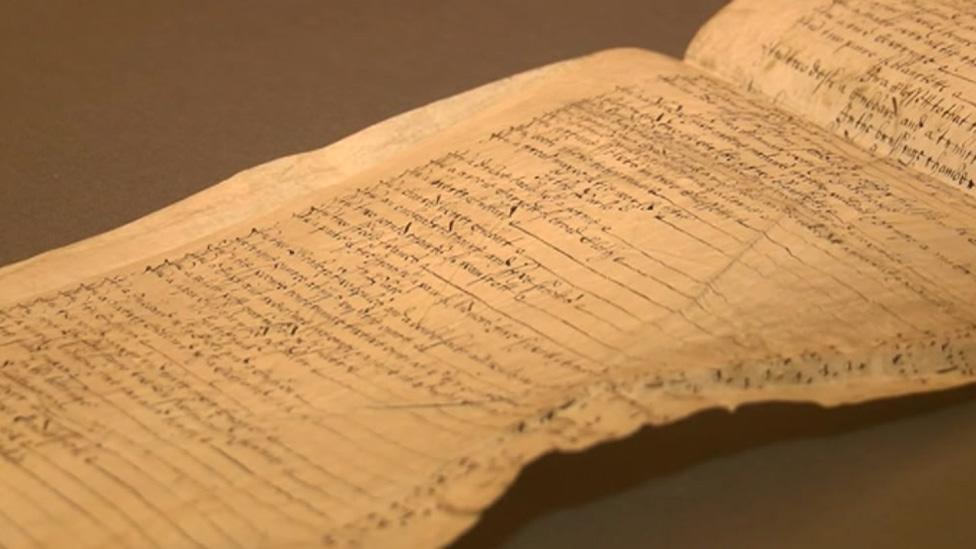Did Pilgrim Father Stephen Tracey return home to Great Yarmouth?
- Published
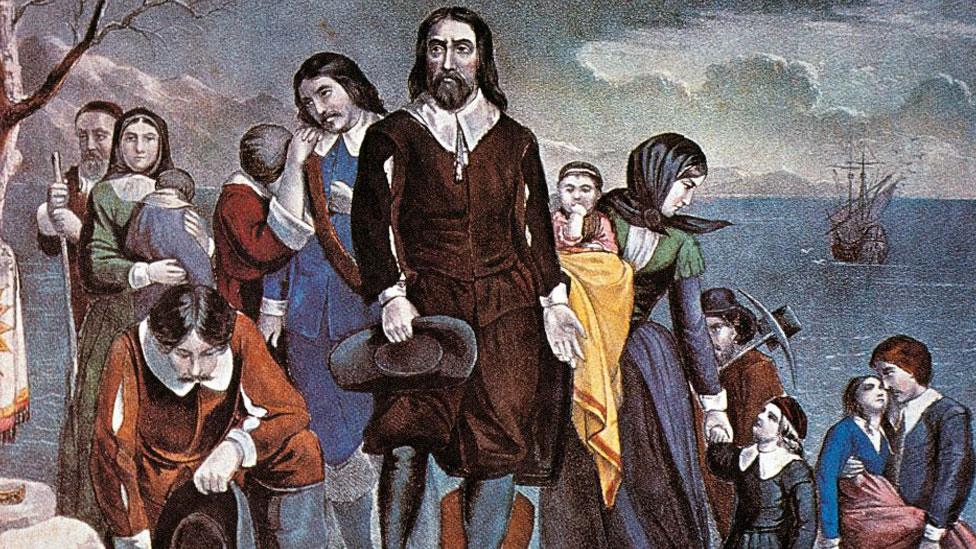
Pilgrim Father Stephen Tracey arrived in Massachusetts in 1623 and was believed to have died shortly after his return to England in about 1654
A "mystery that no one knew was a mystery" about the life of a Pilgrim Father appears to have been solved.
Stephen Tracey was thought to have died in about 1654, on his return to England after three decades in Massachusetts.
The discovery of a will dated about 1672 in archives in Norfolk has challenged "the long-held belief", said his biographer Martin B Tracy.
Found by numismatist Adrian Marsden, it suggests Tracey lived on for nearly 20 years in his Great Yarmouth birthplace.
"It slowly fell into place, it was finding the will that did it, I'm pretty sure it's the same bloke," said Dr Marsden.
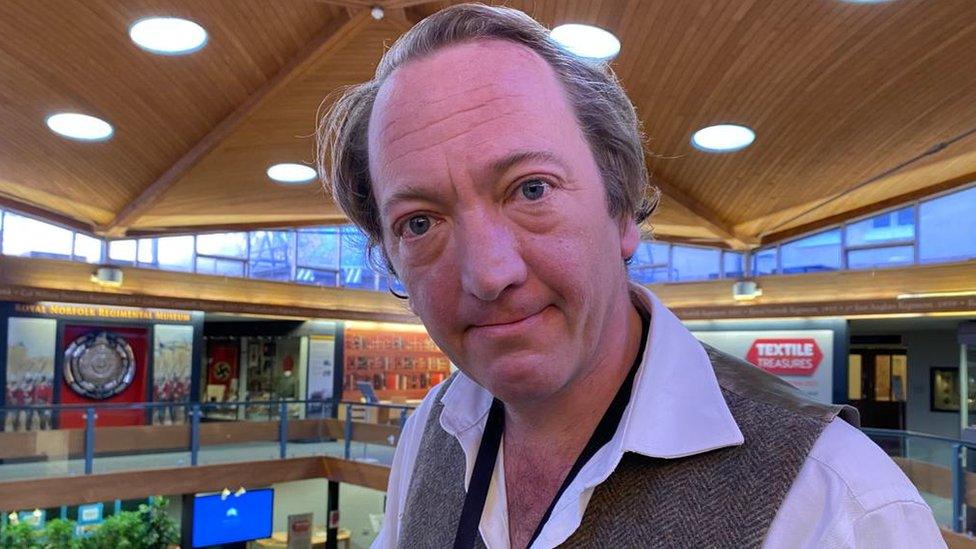
Coin expert Dr Adrian Marsden, of Norfolk Historic Environment Service, has been investigating trading tokens since 2014
Mr Tracy, the author of The Puritans: Thomas and Stephen Tracy, believes the evidence challenges the "long-held belief" the Pilgrim Father "wrote his will in London in March 1654/5 and he died the same year".
Dr Marsden, from the Norfolk Historic Environment Service, began his digging while researching 17th Century trading tokens issued by a Stephen Tracey of Great Yarmouth.
Trading tokens were a type of coinage issued by merchants to enable trading activities to proceed when there was a shortage of officially-issued coins.
Dr Marsden is investigating the people behind them, as part of the Norfolk Token Project, external.
He connected the Great Yarmouth merchant to a 1672 will in the Norfolk Record Office of a man with the same name as the Pilgrim Father.
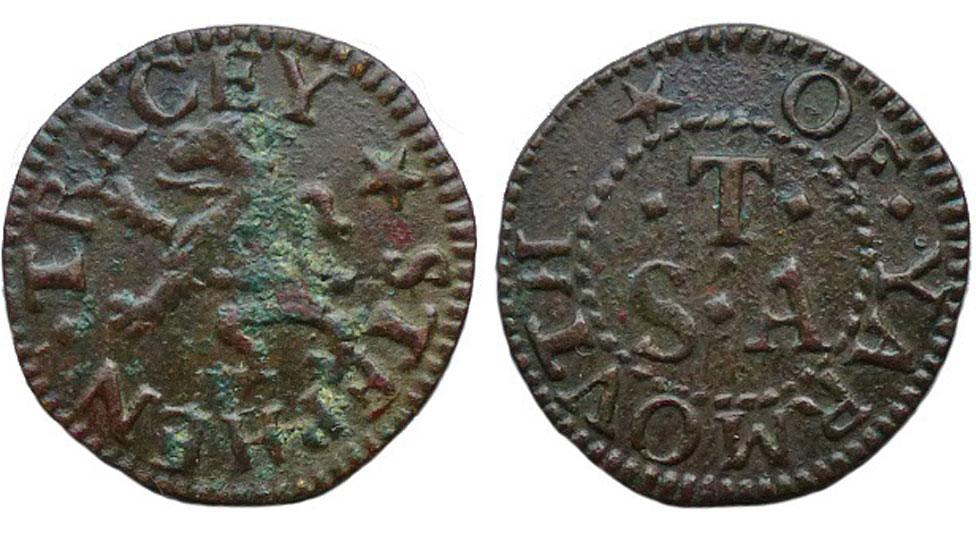
He wondered if there was a connection between the Stephen Tracey of Yarmouth who issued this trading token - and the Pilgrim Father
Yet a 1654 document disposing of Stephen Tracey's American property has long been treated as his will, and proof he died shortly after his return to England.
Dr Marsden said: "But it's a power of attorney, it's nothing like a will.
"It's exactly the sort of document you'd expect someone to write if they're leaving New England and returning to old England to settle their affairs."
He believes Tracey's wife must have died by the time of the document, because his American property is only distributed to his children.
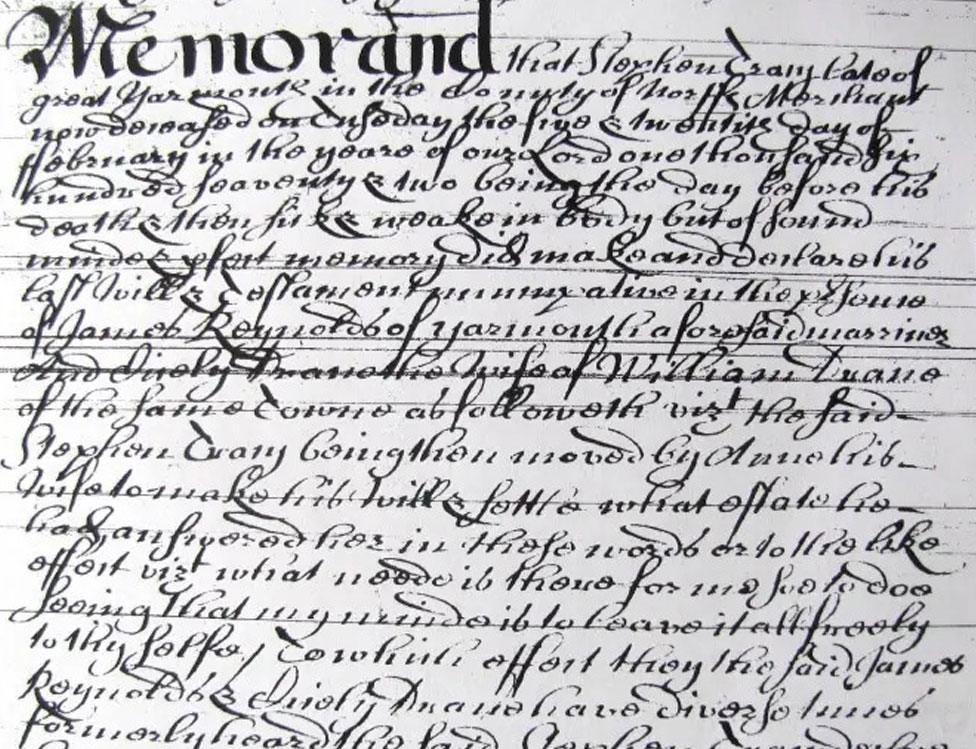
Dr Marsden linked the Stephen Tracey of the trading tokens to a will at the Norfolk Record Office
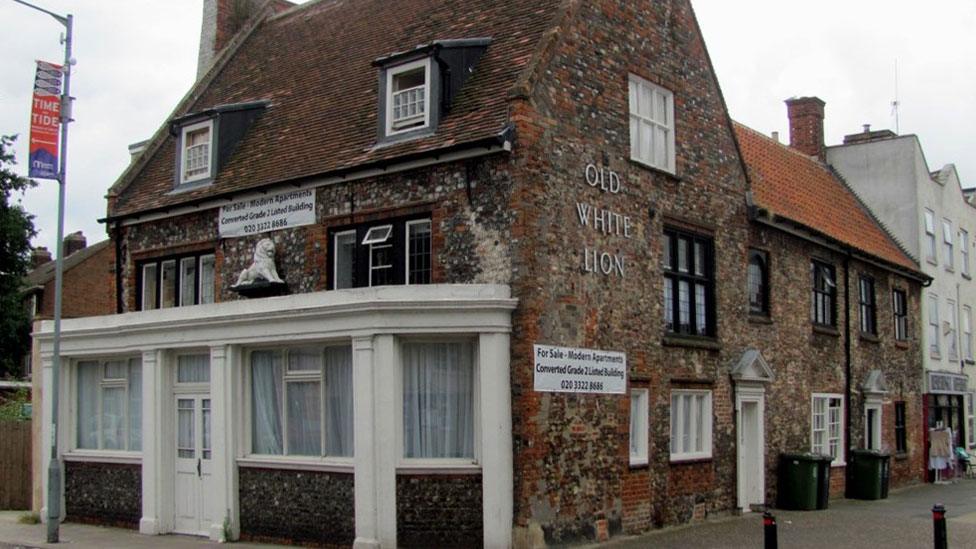
His research suggests the lion on Stephen Tracey's trading token could be linked to the former Old White Lion pub, one of Great Yarmouth's oldest buildings
Stephen Tracey - or Tracy as the US sources usually spell his name - is one of the Pilgrim Fathers, external, the men and women who travelled across the Atlantic to colonise north America between 1620 and 1623.
He was baptised in Great Yarmouth in December 1596 and as a young adult became part of a Protestant movement called the Separatists, external. They found the Protestant form of worship then in vogue in the Church of England too "high church".
By 1620, he had moved to Leiden, South Holland, to join other Puritans and shortly after married fellow-exile, Tryphosa Lee.
They arrived at Plymouth, Massachusetts, in 1623 on the Anne, just three years after the arrival of the more famous Mayflower.
"Much has been written about him - these Puritans are the equivalent to royalty in the US," said Dr Marsden.
"He raised a family with Tryphosa, gradually he acquired land and livestock and is listed as a freeman of the Plymouth colony in 1633, before moving across the bay to Duxbury, where he served on juries and committees."
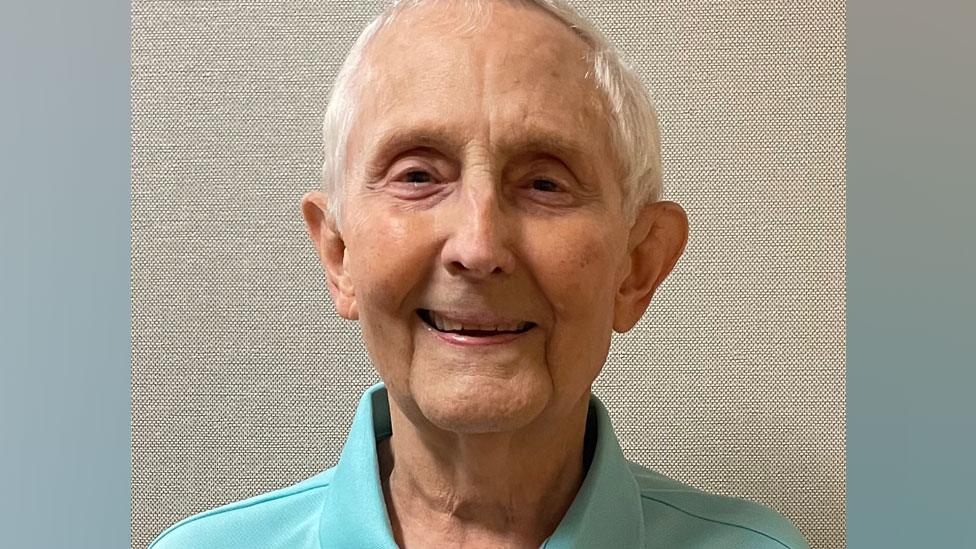
Martin B Tracy has researched Stephen Tracey's US story and said he finds Dr Marsden's evidence of his return to England convincing
But why would this committed Puritan return to England?
Dr Marsden said: "He hears about the Commonwealth, external, they've banned the Maypole and Christmas, external, and he thinks it's even more joyless than New England, so he is quite happy to go back now.
"I also suspect he has lots of contacts who are helping him ship back beaver pelts and other elite goods that were in in demand in 1650s England.
"And if Stephen Tracey brought back a substantial amount of capital he would, as a wealthy widower, have made an attractive marriage prospect."
The trading token has the words Stephen Tracey on one side with Of Yarmouth encircling the letters T, S and A on the reverse. In Dr Marsden's experience, this suggested that Tracey had a wife whose name began with A.
This led him to the Stephen Tracey 1672/3 nuncupative will, meaning it was written by witnesses at his deathbed, which left his estate to a wife called Anne.
Mr Tracy, from Lake Mary, Florida, USA, said: "Stephen not only didn't die in 1655, but he also remarried, owned a business, and lived almost another 20 years.
"In effect, Adrian has solved a mystery that no one knew was a mystery."
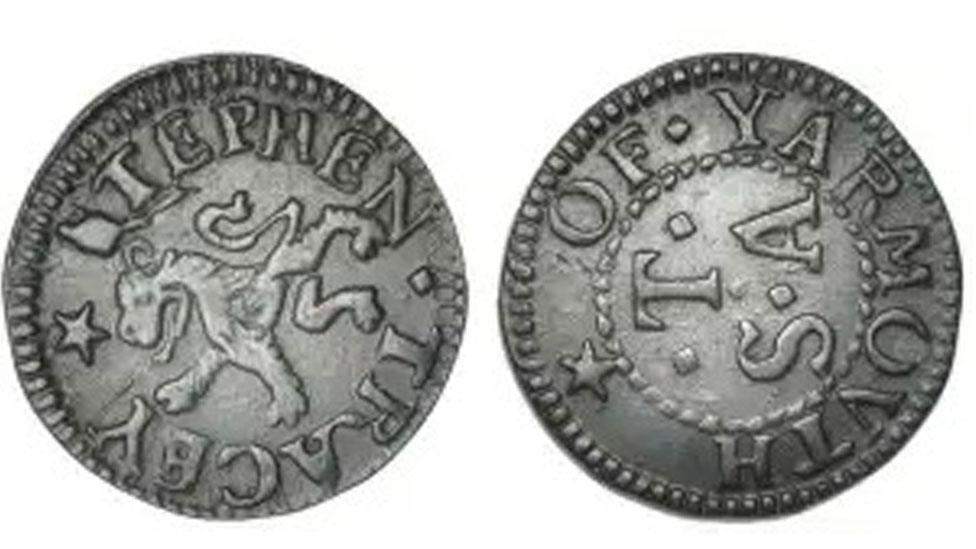
Trading tokens were issued by many 17th Century merchants at a time when coins were in short supply as a means of keeping trade flowing

Follow East of England news on Facebook, external, Instagram, external and X, external. Got a story? Email eastofenglandnews@bbc.co.uk, external or WhatsApp 0800 169 1830
- Published23 September 2023
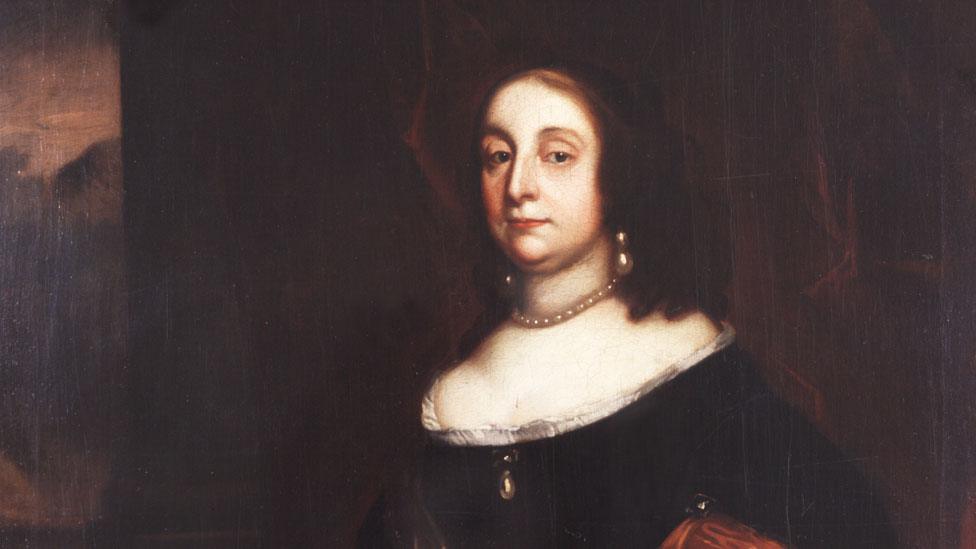
- Published20 September 2023
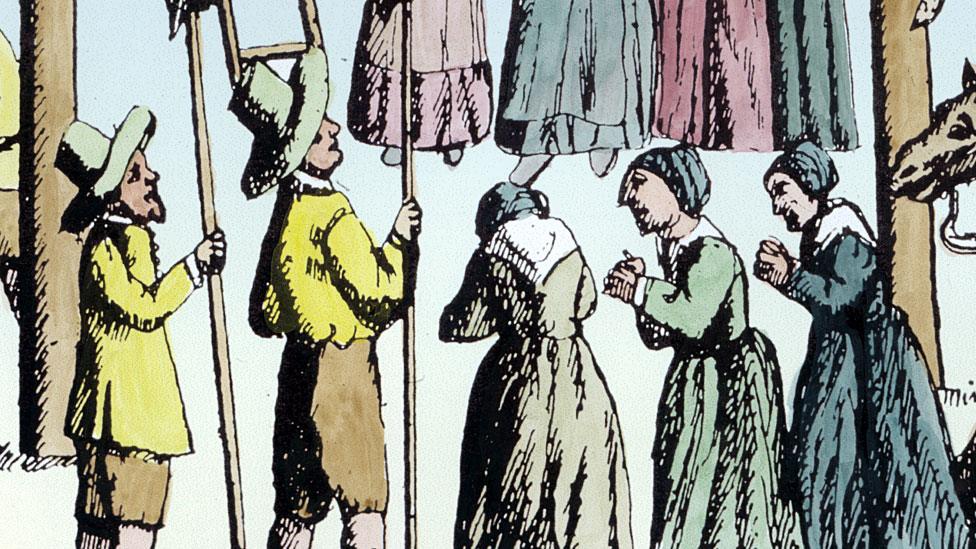
- Published21 March 2023
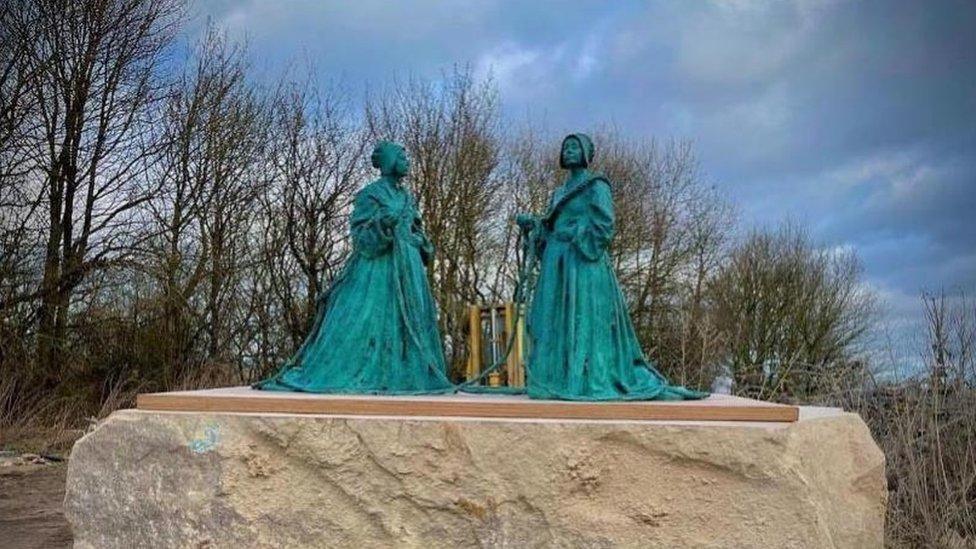
- Published18 September 2020
- Published28 September 2019
